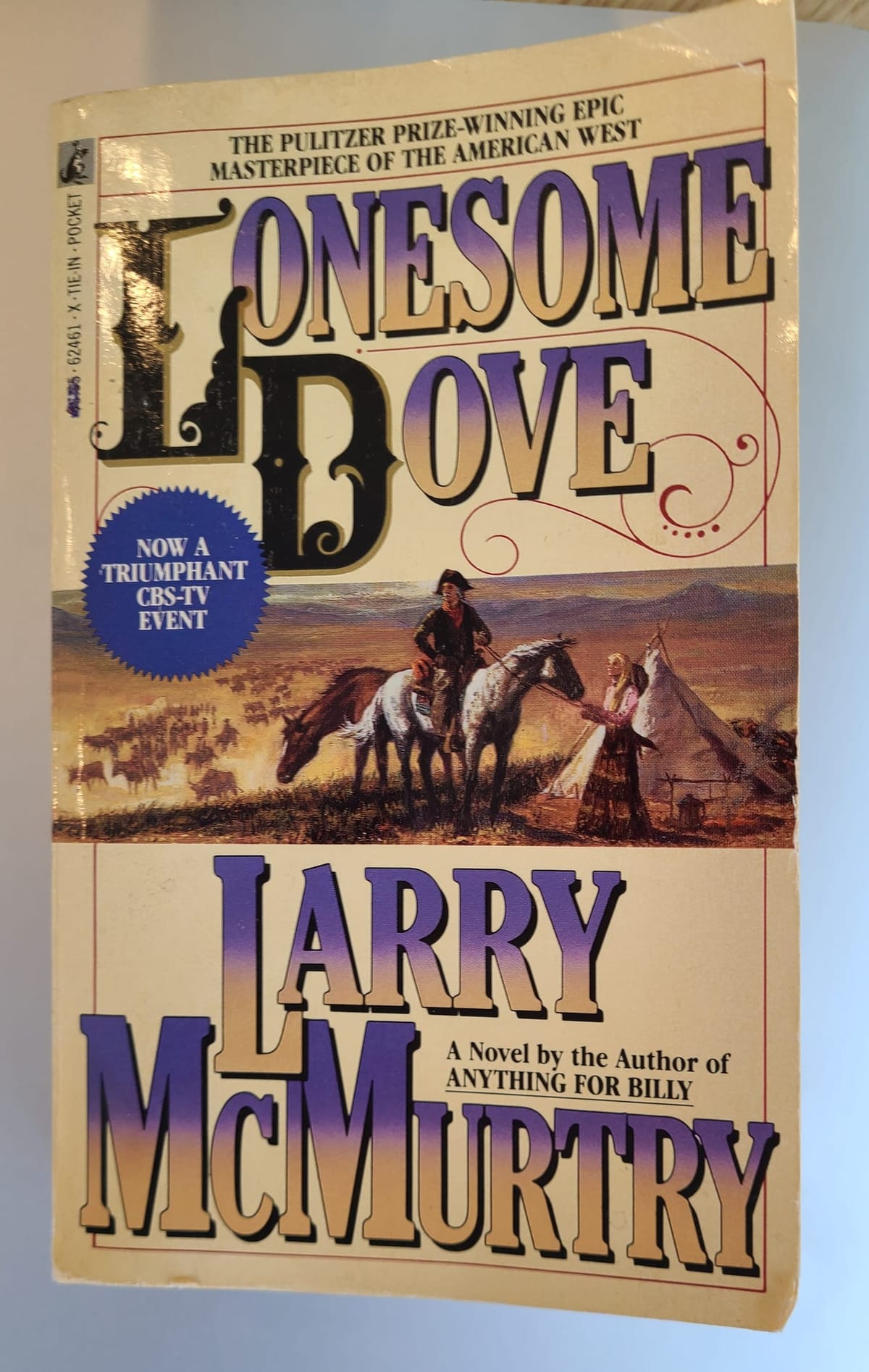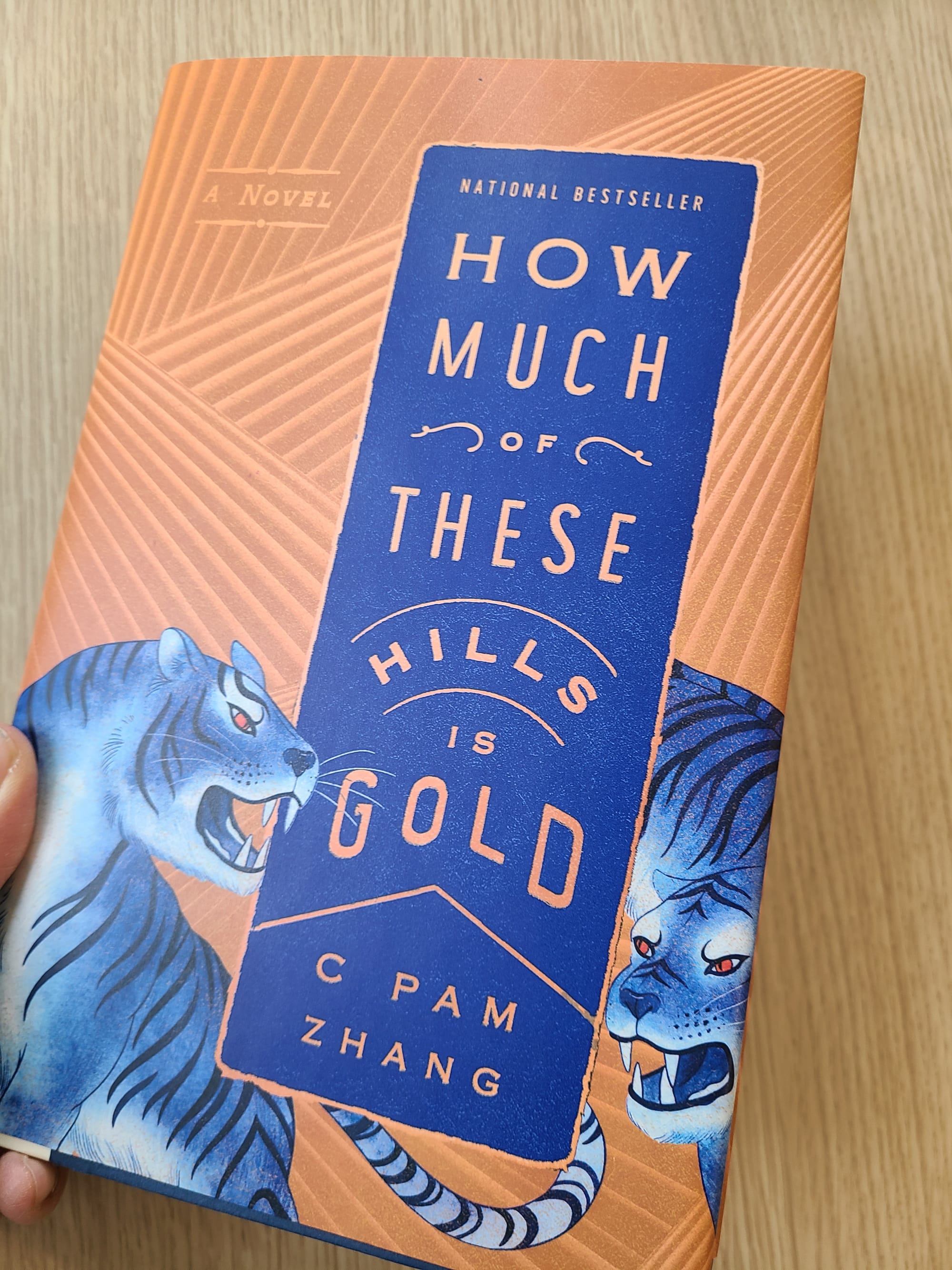Cowboys Aren't Just Cowboys: 3 Books That Changed My Mind

I never really cared for Westerns. They seemed like relics from my dad's generation - rugged cowboys doing rugged things, squinting and swaggering into sunsets of black-and-white morality where the only real people of depth were settlers doing brave things against the tumult of the weather, the native Americans, and the few rotten apples among them. But when I picked up Larry McMurtry's Lonesome Dove I was completely blindsided by the character of Gus McCrae, this cowboy who just casually drops philosophy about what it might be like to be a prostitute (and how they’re – shockingly – people) or muses about how all this land they're riding through is built on countless bones. He lives an epicurean lifestyle, one that would be fitting for any roguish and rakish picaresque novel but is balanced out by the stifling character Woodrow Call, who's exactly what you'd expect from a Western hero - tough, silent, capable - except McMurtry, a wholesome devotee to stoicism (which seems to be all the rage right now in the productivity self-help), yet demonstrates how all of that ‘traditional’ masculinity is literally destroying him from the inside out. I was hooked on their epic journey all the way to the end (all 945 pages of it).
Maris Kreizman points out that Lonesome Dove in her review on LitHub is like
“any traditional Western is going to be chock full of bad politics, with its ragtag gang of main characters encountering and othering Mexicans and Indians (sic) and whores (sic) as they make their way north.”
Of course, a Western from 1985, would. But what disappointed her was that while the book resides among the great ‘American Novels’ (with a Pulitzer, no less), by the time she read it, it felt like everything that enthralled the readers who praised it, had already “seeped its way into popular culture and into my brain all the same. I came to it already familiar.”

What's funny is that Lonesome Dove only ended up in my hands because I'd finished C Pam Zhang's How Much of These Hills Is Gold, which completely blew my mind about what a Western could be. Where McMurtry surprises you with gut punches of events of what happens to its character that made me put the book down and walk away for a bit out of shock (this is a good thing), Zhang's surprises are like finding gold nuggets - you immediately go back and reread passages just to figure out how she pulled it off, (and that’s the writer in me). She takes everything you think you know about the American West and turns it inside out through the eyes of Chinese-American characters who are just as much a part of that history as any cowboy.
Then, next, I stumbled onto Kim Young-ha's Black Flower. If someone had told me there was a Western about Korean immigrants being running around with revolutionaries and being indentured in the Yucatan, I would've thought they were making it up. But it's based on a true story, and it takes everything we think we know about Westerns and completely reimagines it.
What's fascinating is how these books talk to each other. They're all asking the same questions about what makes a man, what makes a home, and what happens when the world you think you understand turns out to be more complicated than you imagined. In Lonesome Dove, Call can't even acknowledge his own son because he's so trapped in his idea of what a man should be. Zhang's characters are dealing with their father's ghost - literally and figuratively - while trying to figure out who they are in a land that both is and isn't theirs. And the Korean immigrants in Black Flower have to completely rebuild their understanding of themselves when everything familiar is stripped away, including the nation they lose while they’re away.
The violence in these books hits differently, too. McMurtry slaps you with something horrible happening to a character you've grown to love. Zhang makes violence feel both personal and mythical, like every act of force is connected to something deeper in the land itself. And Kim's characters bleed from their work, bleed from the old and new burdens they carry, and try to negotiate lives they never bargained for.
What gets me is how none of these books do what you expect a Western to do. At the end of all of them, you don’t feel like you’ve just been taught some morality of the world, but are left with questions that make you look around at what we claim to know about our own moments, our own lives, what it means to be a man, to belong somewhere, to make a home in a world that might not want you there. Reading them together is like watching three different artists paint the same landscape, each one showing you something the others missed.
Both How Much of These Hills is Gold, and Black Flower, were infinitely readable, and you constantly want to know what happens next, and you wonder about the books well after they’re done.
Lonesome Dove does something a bit different; it stays with me in a way that I think only epics can: a deep foundational story that we as Americans may want to deny is part of us, yet may never be able to reconcile; McCrae may empathize with others far more deeply than most characters in Westerns may, yet there are few tears shed about the apocalypse that was occurring around him because, like all of us, the turmoils of his own life and those immediately around him are what concerns him most. Much like Achilles’s concern is overwhelming wrath and pride and ambition.
I’ve been digging the punk band Bad Pioneers. I’ve been thinking about epics in terms of exposing us to things about what it means to be us in a culture that is influenced by them. To me, Lonesome Dove is one of those books you just have to read, especially if you’re a modern American man trying to figure out what it means to be us.
Then let Zhang flip your whole understanding of the American West with How Much of These Hills Is Gold.
Finish with Black Flower to see how these same themes play out when you transplant them to a completely different part of the world.
And the whole time, listen to to the Dead Pioneers
Just don't expect to come out the other side thinking about Westerns - or yourself - quite the same way.